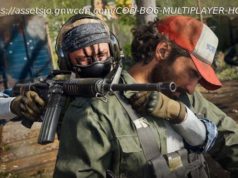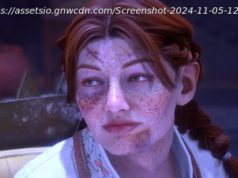Humble Bundle is known for its charity work. EVP and GM Alan Patmore tells us about its publishing arm and his own redemption story.
The Humble Bundle store, where charities benefit from the sale of affordable collections of games, has been a staple of the PC scene since its launch by Jeff Rosen and John Graham in 2010. It’s evolved since then, of course. The pair sold to Ziff Davis in 2017, for example, and then in 2020, Humble Games was launched, making the outfit a bona fide games publisher.
New Executive Vice President and General Manager Alan Patmore is behind the latter move. He joined the company with big ideas in 2019, just before the pandemic. A veteran of games development, he’s had 20 years of experience, with senior roles at Surreal Software, Double Fine and Zynga. But whether it’s the types of games on offer today, or its charitable mission, Humble seems a far cry from the free-to-play Zynga days. Was this a deliberate gear shift?
PCGamesInsider.biz grabbed some one-on-one time with Alan Patmore last month at Gamescom in Germany and quizzed him on the journey he, and Humble, is on.
PCGamesInsider.biz: Please tell us a little bit about you and your background. You’ve had a long relationship with games…
Alan Patmore: I originally started in gaming back in 1995. I founded the company Surreal Software, which was best-known for the PC game Drakan. Then there was the Suffering franchise, which we worked with Midway on. Midway purchased Surreal in 2004. We worked with them on some other games – a sequel for Suffering, and a game called This Is Vegas, which never saw the light of day [laughs]. And then, when Midway went bankrupt, they sold a bunch of the assets to Warner Bros.
This interview took place live at Gamescom 2022, which welcomed 1,100 exhibitors to Cologne in August. Photo: Koelnmesse / gamescom / Thomas Klerx
I decided to move on and try something new. So I got hooked up with Tim Schafer at Double Fine, and I was VP of Product Development for Tim when they had just come off Brutal Legend. We wanted to break into four or five smaller teams and work with creatives on innovative projects. I led that transformation of the studio from a single, big AAA studio, to working on these smaller projects.
About two years into working at Double Fine, I met Zynga, which was pre-IPO. They were exploding. I was in the Bay Area, and it was kind of a hot time. I was interested in the mechanics of social gaming, just from purely a psychological aspect, and the network effect of working on a social game. So I went over to Zynga and ran Mafia Wars and, ultimately, CityVille, which was the biggest game in the world at the time from an MAU and DAU standpoint.
I left Zynga and was recruited by KIXEYE, which was an upstart free-to-play company at the time. They were making much more hardcore games – basically free-to-play games for gamers. They were best-known for Battle Pirates and War Commander. And I really liked the fact that we were focusing on quality. Those games were much smaller scope in terms of active users but were monetised incredibly well.
I really spent a lot of time in the free-to-play world for a while. But then, ultimately, after five years of free-to-play, I decided I wanted to get back into my core, which was premium gaming – and, to some extent, indie gaming. I also felt that free-to-play wasn’t serving me creatively. I admit that, yes, from an economic and quantitative perspective, it was very interesting. But from a creative perspective, it wasn’t cutting edge. It was kind of rote. “Now we’re just banging it out.”
So I wanted to do something new. Humble reached out, and it was the best of both worlds. I was really attracted to the mission – the fact that the purpose was to be a force for good in gaming – and to counter the free-to-play. To some extent, I was like, “This is a little bit of redemption!”
At the time, they had a very nascent publishing group. They had worked on a handful of games and had maybe four of five people working on publishing. And I saw a lot of opportunities to grow that part of the business. And that part really connected with me. The mission was: there’s an opportunity to really grow this side of the business. And that really speaks to my developer roots.
The biggest thing was: “I have the autonomy, and I can shape this publisher the way that I want to shape it.” I really looked at it from a developer’s perspective. So having half my career on the other side, where I was an indie developer, pitching publishers and so on, and all of the good and bad that comes along with that – I asked how do I create a publisher that is kinder to a developer? That was really attractive to me. I could create a developer’s publisher. That’s when I came over to Humble, three years ago. I took over for Jeff and John, who decided to transition out of the company after they sold it to Ziff Davis, who took over and started investing heavily in what is now Humble Games.
Fight your way across the city before sunrise in isometric brawler Midnight Fight Express, available now.
We’re really focusing on quality, innovative titles. And really with the mission of being a partner to developers, while giving them the resources to realise the full potential of the product. We don’t want to get in the way. We want to give them what they need to be successful.
What was your biggest challenge straight away?
Taking over from founders is always hard. Culturally and from a leadership style. They were awesome, and they ran a great business. But as the business evolves, the needs change of the business, and the industry changes. What we did three years ago wouldn’t necessarily work now. So bringing the team along on that journey has been the biggest challenge.
We’ve had to grow a lot in different areas, and flex different muscles. It’s building up a publishing organisation essentially from scratch. It’s gone from three or four people to now having a team of 34 people, and revenues have grown exponentially over the last three years.
When we first started, especially on the Humble Games side, we were not what I would call a full life-cycle publisher. Essentially, we provided financing, and some light QA and release management, and maybe some localisation if people were lucky [laughs] – and very light touch marketing.
Now, we’re concept-through-live. We have full support from production and development support, localisation support, QA and marketing and PR and analytics – whatever it may be. We built all that up. And building that foundation has been challenging, but it’s also why I love the job.
Does that mean that you’re looking for game development partners at a very early stage? How do you go about talent scouting?
We have multiple sources. But we have a full sourcing team that is actively looking at content, always.
Early on, since we did not have a full remote production pipeline to support games, we were mostly investing in late-stage. Or we would look at Kickstarter and a game that was halfway through. They’d already been funded partially, and they needed finishing funds. They need to get it over the line.
But then, over the course of a year into my coming to Humble, we really started to shift. The investment profile changed. We started doing earlier-stage investments as we built up our capabilities.
We had a sourcing team that would start looking for and engaging with, developers much earlier in the pipeline. And then, as the brand became larger and known, we get a lot more inbound.






